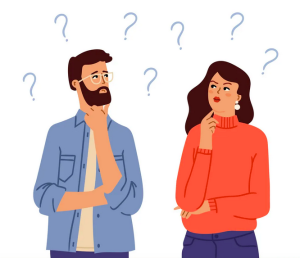Last night my daughter’s hamster, Snuggles, died. I thought she was sweet, but we had only had her for a month or two. I didn’t think I was “attached” to her. Until she died.
She had signs she was doing poorly so I was keeping a close eye on her. She died in the middle of the night and my tears fell in a steady stream. When I told my daughter in the morning, she cried a little. At that moment she was more mad than sad. I was again steadily crying. She asked, “Mom, why are you so upset?” My response? I didn’t have one, but the tears were still flowing. I could barely choke out the words to ask Grandfather Dad to bury Snuggles.
I drove work feeling drained. I kept thinking about my daughter’s question. Ironically, if someone was telling me this story, the answer would have been obvious to the therapist in me. I was in the middle of my feelings and couldn’t see it. As I pulled into work it hit me.
Grief is what I call a compounding emotion (as are other emotions). Have you ever noticed when you are happy about something, you remember other happy times? This is also true when it comes to loss. When you are feeling grief, your mind and body remembers other times you grieved.
I can’t say that I have experienced more losses than others my age, or even ones that are more difficult, but they are my losses. They come in various forms. Some expected, others not. The traditional losses where someone dies, like my grandparents, brother, and mother. The secondary losses, the people or things you lose related to the primary loss. For example, when my brother died, I lost being the oldest of two children. I was now the only child.
Then there are the non-death losses. When I was younger, we moved a lot, so there were many good-byes, break ups with boyfriends, changing jobs, isolation due to COVID. Every day, we have small losses. A friend has to cancel plans for lunch. We leave the yummy lunch on the counter and have to throw it away when you get home.
It was probably no coincidence that Snuggles died the night I started telling the adults I work with that I was resigning. Pulling into work meant it was time to start telling all the children I work with that I am leaving at the end of the school year.
You can probably see the answer to my daughter’s question now. I was crying for Snuggles, past losses, and facing a week of creating losses. Does my daughter need to know all that? No, but for me, it was a profound reminder that good things (my new job) often come with losses. My crying was cathartic. It allowed me to release some of my feelings so I could talk to the children from a positive emotional space and not put my feelings on to them. I could be there to support them.
Rest In Peace Snuggles. You had a profound effect in my life.
If you do a search on the internet for grief or coping with loss, there is a lot of information. You could get lost in it all. Rather than rehashing the normal tips, below are some of the things that have stuck with me over the years dealing with my own and others’ grief. I hope you find it helpful.
Grieving Basics
Honor your feelings. You don’t need to apologize for crying, being sad, mad, being numb, needing alone time, or wanting someone with you.
Timing. It doesn’t matter if the loss occurred yesterday or 40 years ago. There will be good times and ones that overwhelm you.
Take care of your body. Eat when you can eat, sleep when you can sleep, drink water, and get a little exercise, like a short walk.
Reach out. To a friend, a member of the clergy, coworker, or therapist to get support. Your grief is yours; no one can get through it but you, BUT you do not need to be alone.
Do not compare. Your loss is yours. Don’t minimize it by comparing it to someone else’s “worse” situation.
People will say stupid things. With the best of intentions someone may say something that hurts you. After my brother died, many people said to me, “oh, your poor parents. How are they?” Remember I mentioned we should never compare our losses. Those people decided that the loss of a child was worse than the loss of a sibling and unintentionally negated my feelings. Bottom line: The worst loss is the one you are dealing with.
“Aren’t you over it, yet?” In our society people act like grief should go away after the 2 or 3 days of bereavement leave you get, if you get it at all. There will be some who remember your grieving for a few months or a year. By the time a year rolls around, unless they have had a similar experience, too often people do not ask how you are, and if you are sad, they are quick to change the subject. We don’t do death well.
At any point you can return to any of the above.
How to Support Someone who is Grieving
Make an offer. It is hard to ask for help in the best of times. When you are grieving it can feel impossible. Instead of saying, “call me if you need anything,” offer something. Could be, “I am running to the store, can I pick up anything for you?” “Could I come over Saturday and mow the lawn for you?” Even if they say no, they will appreciate the specific offer to help.
Plan for the long haul. Right after the death typically there are a lot of people around the bereaved. People call and check in, bring meals, watch the kids, etc. Then they all go back to their lives and the bereaved can feel isolated. Plan to call them in a couple weeks, months, or important anniversaries. It can be a simple “I am thinking about you,” or an offer to do something specific.
Important Dates. Make a note of the death date, other important dates, and put them on your calendar. Reach out in the in the days before, the day of, or a day or two after. those important days. All you have to say is I am thinking about you. It will mean the world to them that you took the time to remember and acknowledge their loss.




